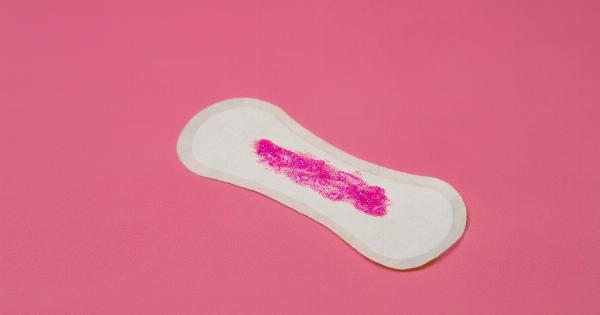Nocturia, also known as nightly urination, is a common condition characterized by the need to wake up at least once during the night to urinate.
While occasional nocturia is normal, frequent nightly urination can disrupt sleep patterns and negatively impact overall well-being. In this article, we will delve into the causes, symptoms, and treatment options for controlling nocturia, helping you regain control of your sleep and improve your quality of life.
Causes of Nocturia
Nocturia can be caused by various factors, including medical conditions, lifestyle choices, and age-related changes. Some common causes include:.
Medical Conditions
Several medical conditions can contribute to the development of nocturia. These include:.
1. Urinary Tract Infections (UTIs)
UTIs can irritate the bladder and cause an increased need to urinate, both during the day and at night.
2. Enlarged Prostate
In men, an enlarged prostate gland can press against the urethra, obstructing urine flow and leading to nocturia.
3. Bladder Disorders
Conditions such as overactive bladder (OAB), interstitial cystitis, and bladder stones can cause frequent urination, including at night.
4. Diabetes
Uncontrolled diabetes can lead to excessive thirst and increased urine production, resulting in nocturia.
Lifestyle Factors
Several lifestyle choices can contribute to nocturia:.
1. Excessive Fluid Intake
Consuming large amounts of fluids, especially close to bedtime, can increase urine production and lead to nocturia.
2. Caffeine and Alcohol Consumption
Caffeine and alcohol act as diuretics, increasing urine production and making you more likely to wake up at night to urinate.
3. Medications
Certain medications, such as diuretics, may increase urine production, leading to nocturia.
Age-Related Changes
As we age, our body undergoes various changes that can contribute to nocturia:.
1. Reduced Bladder Capacity
The bladder may not be able to hold as much urine as before, leading to more frequent trips to the bathroom.
2. Reduced Kidney Function
Age-related decline in kidney function can result in increased urine production and nocturia.
Symptoms of Nocturia
Nocturia itself is a symptom, but it can be accompanied by additional signs such as:.
1. Frequent Urination During the Night
Waking up two or more times per night to urinate is a clear sign of nocturia.
2. Urgency to Urinate
The need to urinate urgently, often accompanied by a strong urge to void, is common with nocturia.
3. Difficulty Falling Back Asleep
After waking up to urinate, many individuals with nocturia struggle to fall back asleep, leading to sleep disruptions.
Treatment Options for Nocturia
The approach to treating nocturia depends on the underlying cause. Possible treatment options include:.
1. Lifestyle Modifications
Implementing certain lifestyle changes can help reduce the frequency of nocturia episodes:.
a) Limit Fluid Intake Before Bedtime
By reducing fluid intake a few hours before bedtime, you can help minimize nocturia episodes.
b) Avoid Caffeine and Alcohol
Avoiding or limiting the consumption of caffeine and alcohol, especially in the hours close to bedtime, can alleviate nocturia symptoms.
c) Urinate Before Bed
Emptying your bladder completely before going to bed can help reduce the need to urinate during the night.
2. Medications
In some cases, medications may be prescribed to treat underlying conditions contributing to nocturia:.
a) Alpha-Blockers
For men with an enlarged prostate, alpha-blockers can help relax the muscles and improve urine flow, reducing nocturia episodes.
b) Anticholinergic Medications
Anticholinergic drugs may be prescribed to individuals with overactive bladder, helping reduce urinary urgency and frequency, including at night.
c) Desmopressin
Desmopressin is a synthetic hormone that can reduce urine production and alleviate nocturia symptoms.
3. Behavioral Therapies
Certain behavioral therapies may be recommended to help control nocturia:.
a) Bladder Training
Bladder training involves gradually increasing the intervals between urination to help the bladder hold more urine for longer periods.
b) Kegel Exercises
Kegel exercises involve strengthening the pelvic floor muscles, which can help improve bladder control and reduce nocturia episodes.
4. Medical Procedures
In some cases, when conservative treatments are ineffective, medical procedures may be considered:.
a) Prostate Surgery
For men with severe symptoms caused by an enlarged prostate, surgical interventions such as transurethral resection of the prostate (TURP) may be recommended.
b) InterStim Therapy
InterStim therapy involves the implantation of a small device that stimulates the sacral nerves to improve bladder function and reduce nocturia.
Conclusion
Nocturia can significantly impact sleep quality and overall well-being. By understanding the causes, recognizing the symptoms, and exploring the available treatment options, you can take steps towards controlling and managing this condition effectively.
Consult with a healthcare professional to determine the underlying cause and develop an individualized treatment plan that suits your needs, helping you achieve restful nights and improved quality of life.































